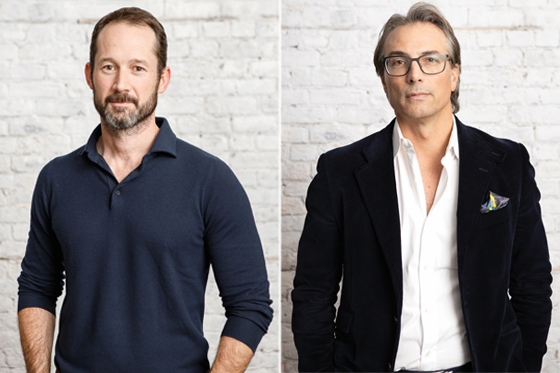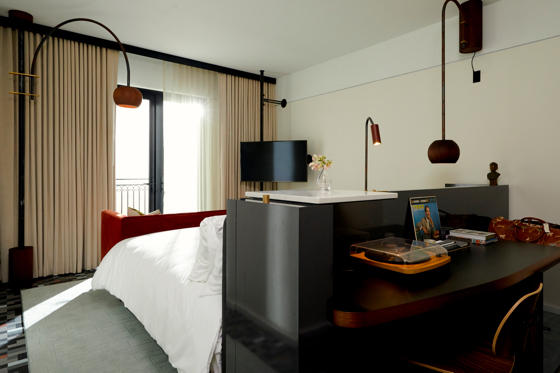At a moment when smaller, drive-to markets feel safer and are more accessible, Chicago-based Aparium Hotel Group might be better positioned than most to rebound from the impact of COVID-19.
With a focus on authenticity, social responsibility and connection to the local community, this eight-hotel, 1,000-room independent owner-operator is positioning itself for growth as distressed assets start to turn over. In its pipeline are six properties set to open in the next 12 to 18 months. Aparium also has a roadmap for reopening its current portfolio, which you can read about here.
Founders Mario Tricoci and Kevin Robinson, whose partnership started when they opened the luxury Elysian hotel in Chicago during the worst days of the 2008 financial crisis (it was sold and rebranded as a Waldorf Astoria in 2009 after a big investor wanted to cash out) have learned a lot about resiliency over the past 10 years. They are also staying true to Aparium’s DNA despite temptations to take on management of branded projects.

“The business model has been to develop adaptive reuse lifestyle projects in secondary markets, for two reasons,” Tricoci said (its open hotels are in markets like Detroit, Michigan; Topeka, Kansas; Minneapolis, Minnesota; and Montclair, New Jersey). “It’s easy access, low hanging fruit, where there was white space in the industry. But also, we didn’t want to go out and work for another company. We really wanted to build something that we could do the rest of our working lives.”
Robinson, who spent about 16 years combined at Starwood hotels and Four Seasons Hotels and Resorts, recalled the dramatic impact that the 2008-09 economic collapse had in major markets, and he knew that long term their model could be sustained. “If we focused on these tertiary, secondary markets, they had less peaks and valleys, economic downside, and recovered more quickly,” Robinson said. “And, here we are today. We believe that recovery will indeed be sustainable and quicker in many of the markets that we’re in.”
When COVID started to gain ground in March, Aparium quickly closed its lifestyle hotels with strong F&B components. By mid-August only the Topeka property had rooms open, while others were operating only F&B. The Crossroads in Kansas City, The Hewing in Minneapolis and the MC Hotel in Montclair had opened up their rooftop bars and restaurant patio spaces, and were planning to open rooms in September.
Generally, the founders feel pretty good about their position: No assets are levered above 50% and they have great relationships with their lenders. “They trust us and will follow us for a long time,” Tricoci said.
Development plans
The six hotels under development have delayed openings into 2022. The Surety in Des Moines, Iowa, and Hotel Haya in Tampa, Florida, are set to open by year-end. The Daxton Hotel in Birmingham, Michigan, the Jasper Hotel in Fargo, North Dakota, and The Clayton in Denver, Colorado, will follow by early 2021. The Hotel Heron in Alexandria, Virginia, is slated for mid-2022. The portfolio is a mix of 100%-owned assets, some with minority interests; about half is strictly managed.

In July, Tricoci said Aparium signed a term sheet and was in full negotiation on an HMA in another major Midwestern market, adding that they are looking at a lot of opportunities. “We’ve paused on the start-from-scratch development side of things,” he added. “We probably have a better opportunity of getting things below replacement cost here in the near future.”
The group plans to raise an investment fund of US$150 million to US$200 million for strategic acquisitions. “They have to fit with the Aparium model, and it’s a way for us to grow not only our real estate positions, which is a little secondary, but our management portfolio,” said Tricoci, who came from an entrepreneurial family known for its day spa business.
He cites individual assets that will become unencumbered, which they could slide into and reposition; busted development deals where it can infuse Aparium’s spin; and opportunities with cool assets where owner and operator can’t reopen.
“There’s a lot of owners, partners and operators that are looking for help,” Tricoci said. “And we can be that assistance, not only with our expertise in how we operate and how we think about the post-COVID era, but with the capital we have to do it.”
‘We’re original’
Aparium is doubling down on its strengths and assets. “By definition, we’re original. By definition, there’s authentic tissue there,” Robinson said. “We connect to the local market. We have all those relationships (anywhere from 30 to 50 deals with local vendors). It’s ensuring that those are leveraged, that they’re activated… We don’t replicate anything. We don’t take anything off the shelf and apply it. It is new thinking every single time. It’s inefficient by definition, but it’s the only way to stay truly independent.”
Their pillars for being the “translocal” hospitality player in the market with intuitive service and a collaborative mentality set up Aparium to be the new grand dame of each its markets, Tricoci opined. He called bigger lifestyle brands “disingenuous. They are. Put a local beer on tap and then say you’re connected to the local community is bullshit,” he says. “That’s not true.”
Robinson added that when they started the company they decided to reinvent every property, every single time. “We knew it was going to be inefficient, but we knew that it enforces originality and collaboration with local community.”
Looking ahead, Tricoci said Aparium wants opportunities to share its “brand” portfolio with the consumer while making sure that every hotel is its own a brand. “That idea is probably on hold for a little bit because it requires pretty significantly investment… It’s to really continue to generate interest in Aparium so we get more unique looks and incredible opportunities.”

